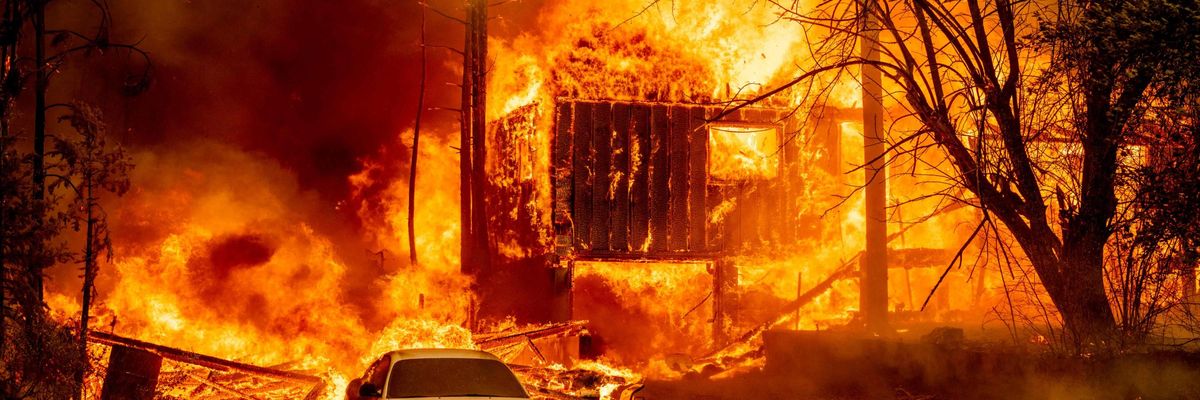Ahead of next week's highly anticipated United Nations report on the climate emergency, 21 leading U.S. scientists on Friday urged President Joe Biden and federal lawmakers to "go big on climate action and to do so now."
"Climate change is here and already exerting a fearsome toll on people, critical ecosystems, and our economy."
--21 U.S. scientists
"As our nation reels from extreme heatwaves, drought, wildfires, and abnormally warm ocean waters fueled an early start to a projected more active than normal Atlantic hurricane season, we are reminded that climate change is here and already exerting a fearsome toll on people, critical ecosystems, and our economy," says the open letter (pdf) to key elected officials.
"Your leadership," the scientists write, "is urgently needed to seize the small window of opportunity that remains to limit the most catastrophic impacts of climate change now and for future generations."
The letter, organized by the Union of Concerned Scientists (UCS), emphasizes how "science shows that we must take immediate action to sharply reduce heat-trapping emissions to limit the worst climate change impacts, protect public health and lives, and limit economic harms."
"We also have a tremendous opportunity to invest in a climate-resilient economy, powered by clean energy, which can bring benefits to all communities in a just and equitable way," the letter adds, pointing to Biden's initial American Jobs Plan.
The scientists' message comes as the White House and Congress are working on a two-part infrastructure package and just days before a U.N. Intergovernmental Panel on Climate Change (IPCC) report that will detail how much more planet-heating emissions can be pumped into the atmosphere before the world hits the 1.5degC threshold from the 2015 Paris agreement.
It is the first of three reports that will make up the IPCC's sixth major climate assessment in the past three decades--and the only part due to be released before COP 26, a U.N. climate summit that kicks off October 31 in Scotland. In anticipation of that event, Biden pledged in April to halve U.S. emissions from 2005 levels by 2030--which experts and activists argue is inadequate.
The nearly two dozen signatories to the new letter--many of whom have worked on IPCC assessments--call for pursuing "robust power sector emissions reduction targets of 80% below 2005 levels by 2030 and 100% reductions soon thereafter, designed and funded in such a way as to drive renewables online, while minimizing ratepayer impacts."
The scientists list ways that such goals can be achieved, from clean power tax incentives and grid updates to supporting a "fair transition for fossil fuel workers" and improving the efficiency of energy use.
"We also need the swift electrification of the transportation sector, through both standards that will both reduce pollution and drive electrification and congressional investment," they write, pushing for spending on school buses, incentives for electric vehicles (EVs), and charging infrastructure.
Biden on Thursday unveiled his plan for EVs and tailpipe pollution regulations. Noting the urgent need for "strong clean-car standards," UCS president Johanna Chao Kreilick said the administration's proposals "just aren't enough to take us where we need to go."
The letter highlights that "communities are already facing climate impacts and need federal policies and investments to help prepare and protect them," demanding funds for public health protections and dealing with disasters as well as the creation of a Civilian Climate Corps.
"Meeting the challenge of this moment," the letter warns, "is a scientific, economic, and moral imperative."

